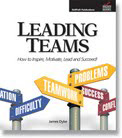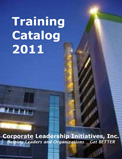“Nemoashi” is a Japanese concept that has direct application in American business culture. It means respect for individuals and the power of consensus building. In application, it boils down to a simple political rule of thumb:
Never present something to a group until you have first lobbied the group members individually.
There is much practical wisdom in this approach.
To begin with, it shows respect for other people’s “turf” and unique point of view.
Remember— most people don’t care as much about you and your ideas as they do about their own ideas and the WII-FM factor (“What’s In It For Me?”). A candid conversation with colleagues will open your eyes to their concerns and help you refine your idea in ways that will help win their support.
These one-on-ones will also allow others to improve on your idea with their own additions, which in turn will give them ownership of the improved idea. In my management training seminars I teach students this simple equation:
P = O
Participation = Ownership
Here’s another way of saying it:
People support whatever they help create.
If you incorporate the ideas and suggestions of your colleagues, they automatically have ownership of whatever you are creating with their help.
BTW… This is an equation that the vast majority of organizational change agents completely abandon in their planning and execution. (I’ll save any additional insights about change management for another post!)
When you float your ideas with key colleagues, their added perspective will also help you avoid the common mistakes created by a narrow, limited view of the situation. If you think you have the “right” answer, you should automatically suspect it—there are always multiple ways to solve any problem or get to any goal. Additionally, there are often many elements of a situation that are easily overlooked by an overly optimistic problem-solver. A different set of eyes will often see things that you are missing! Remember this adage from management guru Ken Blanchard…
None of us is as smart as ALL of us.
Up Close and Personal
In one of my many roles in organizational life, I hatched a great idea for creating conveniently accessible training for people in the organization—to help employees become more effective in their various roles. My plan was simple. I would schedule classroom training so people could come in a little earlier before their shift, or stay a little later after their shift to attend short classes. It wouldn’t require a separate day of training or take time away from their shift. I felt the plan was foolproof. (PLEASE NOTE: Years later I learned the definition of a foolproof plan. It’s a plan that any fool can easily prove to be flawed!) I decided to wallow in my genius by bouncing off my idea with a colleague of mine on the executive team. His response sounded like a non sequitur to me. He posed the question,
“Where are people going to park?” I was a bit puzzled by his question.
“They’ll park where they always do…in the employee parking lot!” I replied. He laughed, and shot back,
“Jim, you’ve obviously never been out at the parking lot during shift changes, have you?” He continued, “Our employee parking lot is completely maxxed out. That’s why we have a break between shifts, to allow departing employees to free up parking spaces for the next shift. If you have people arriving early, or staying late, somebody is not going to have a place to park!”
Ooops…
I’ll say it again…
When you float your ideas with key colleagues, their added perspective will help you avoid the common mistakes often created by a narrow, limited view of the situation.
There’s one more important advantage to nemoashi— when you are willing to allow others to give you feedback on your ideas without becoming defensive or threatened, it demonstrates healthy self-confidence on your part. That earns the respect of higher-ups as well as colleagues!
HERE’S THE LONG AND SHORT OF IT: The practice of nemoashi will make it more likely for you to gain the support of the decision-making group as a whole. By interacting with each group member individually before you pitch your proposal at a meeting of the entire group, you are better able to:
- 1. Refine your idea with the input of other leaders who can give you a broader perspective;
- 2. Include their ideas and input in your proposal and thus give them a sense of ownership;
- 3. More easily build a consensus when the group is assembled together to hear your idea.
This is a simple but incredibly valuable tool for effective organizational politics. Political skill is one of the areas I help my clients with, in my executive coaching sessions. Bad politicking can impede your success in any organization! Don’t let your lack of skill in this area get in the way of your effectiveness and future advancement. Give us a call! We can help you identify key areas of personal and professional development that are holding you back… and we can help you overcome those deficits and get your career moving forward!
Until next time… Yours for better leaders and better organizations,
Dr. Jim Dyke – “The Boss Doctor” ™ helping you to BE a better boss and to HAVE a better boss!




